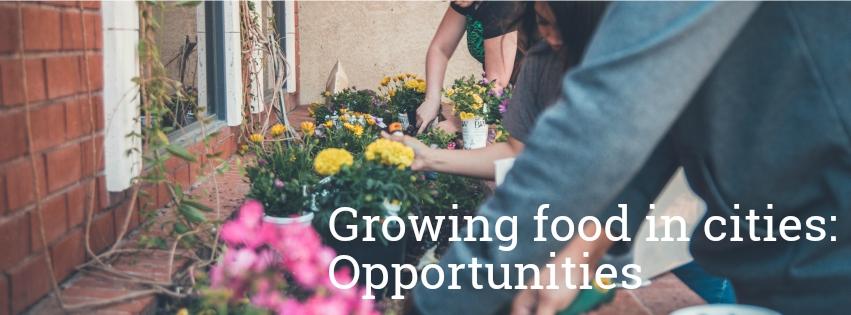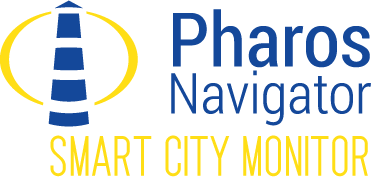Reducing carbon footprints by growing food in cities

How do we begin to educate the mass population in densely populated cities to embrace personal habits that will create less harmful emissions and impacts, and produce lower carbon footprints, thereby improving the living standards in urban areas across the world?
For a successful, smart city to become a reality, city governance will be the critical factor. Without an efficient and dedicated leadership, that is armed with comparable and accurate evidence data and smart easy ways to use analytics, the task will be almost futile. Another factor for educational programs to be successfully implemented is funding and incentives.
The benefit for the city is that educational drives could also produce job creation.
Growing Food, Growing Jobs, Growing Hope
Education goes hand in hand with practical application. Food growing projects would be an ideal way to educate both adults and children alike, as well as providing a means to produce food and create small businesses. For example, within urban settings, vertical and rooftop gardens can be considered as a possible answer.
Unemployed people could be taught how to build these gardens, plant the crops and care for them. The city could pay for the materials, and also pay wages to those doing the work. Even using cryptocurrencies may be a viable option to make these projects easier to start and maintain, for example, MIT start-up SolarCoin pays people with an alternative digital currency for generating solar energy.
Volunteers could be encouraged to participate, and school children could get involved by planning school trips to visit these various food gardens. They could be taught about nutrition as well as growing food. Lesson plans could be designed around these gardens to educate children on climate change, the need to reduce, recycle and reuse and many other subjects.
Local competitions could be held for tech-savvy kids to produce apps that guide users on how to reduce and track their carbon footprints, on a daily basis. Prizes could be in the form of bursaries and scholarships.
Educating people on the importance of using resources, like water, electricity and food packaging, sparingly and the consequences of wasteful living could be prioritized. Most importantly, the idea that large-scale cooperation is vital to the success of such integrated life could be presented as a topic, to help children learn values like sharing and caring.
Interconnectedness and holistic systems only work when awareness is created, and an incentive is provided. Teaching people that there are innovative ways to be self-sustainable, within the confines of urban developments, spreads hope for their futures and that of their children and future generations.
Food growing projects are the perfect way to educate both young and old. Not only is food being produced, carbon emissions reduced and jobs created, but the community is being strengthened, and human connections are being forged.
What’s next and practical steps
Urban agriculture, vertical farming, roof-top greenhouses are already taking places in the cities around the world including European cities. EU support Green Cities initiatives by providing technical advice and best practices such as #EUGREENWEEK event on 21-25 May 2018.
Another way to support the movement is European funding programme such as H2020 calls. The upcoming call to actions “Innovative and citizen-driven food system approaches in cities” (H2020 CE-SFS-24-2019) is aimed at food-related innovative approaches based on citizen science and engagement.
Recommended reading:
#EUGREENWEEK https://www.eugreenweek.eu/
CE-SFS-24-2019 Innovative and citizen-driven food system approaches in cities: http://ec.europa.eu/research/participants/portal/desktop/en/opportunities/h2020/topics/ce-sfs-24-2019.html
Consumption-based GHG emissions of C40 cities, March 2018
World Economic Forum: Circular Economy in Cities Evolving the model for a sustainable urban future
The Guardian: How to reduce your carbon footprint
Smart Urbana — Enabling municipalities with digital transformation instruments for the urban communities
2025 © GOLEM IMS GMBH, Austria. ALL Rights Reserved.
Terms of Service |
Privacy Policy
Made in Austria

